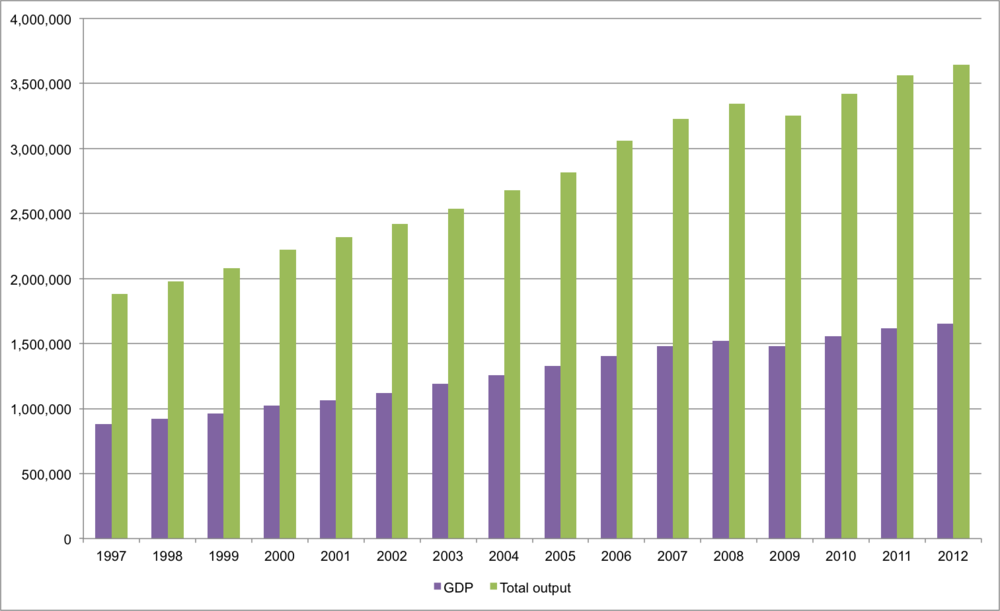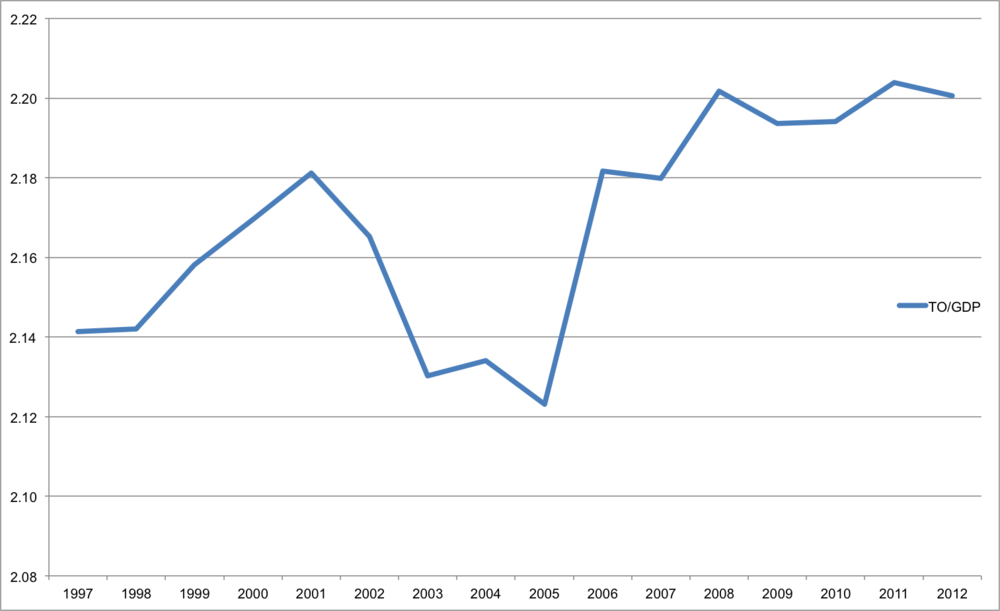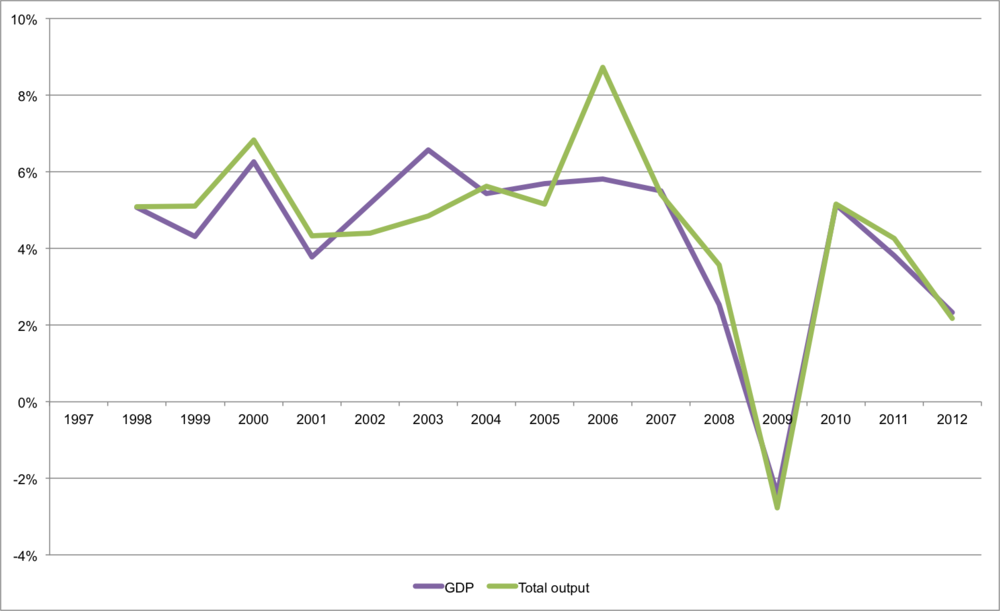October 31st saw the belated release of the 2014 Input-Output Supply and Use Data. This is important because it incorporates a larger amount of economic activity than GDP data, but comes at the cost of only appearing as an annual series, and with an 18 month (or longer) lag. The diagram below shows the breakdown of the measure for 1997:

I've previously mentioned that Gross Output data is now an official BEA statistic, and I am interested in seeing equivelent figures for the UK. Here they are.
Firstly, in terms of absolute numbers, we can see that Total Output dwarfs Nominal GDP.

In fact Total Output is around twice as large as Nominal GDP:

The reduction in the ratio that occured in 2002-2005 is a result of Nominal GDP growth running ahead of Total Output growth. But notice the dramatic increase in the ratio in 2006. This was because Nominal GDP was growing at 5.81%, whilst Total Output grew at 8.73%. This reveals that economic activity was running at a significantly higher pace than a focus on GDP data was telling us:

One of the main reasons why the September revisions to GDP had such an impact was because of a reclassification of R&D spending. This rests on a conceptual problem with distinguishing between investment and intermediate consumption. As more and more economic activity becomes service based we might expect this problem to grow over time. One of the chief benefits of using a broader measure of national income is that it captures all intermediate consumption, and therefore the boundary between intermediate and final consumption/investment becomes less relevent.
These figures reveal that in 2010 and 2011 the wider economy was growing at a higher rate than that being measured by GDP, and in 2012 they were effectively the same. It is very difficult to read much into these annual growth rates, given that there is likely to be a lot of quarterly volatility. But in the same way that the US have started releasing this as a quarterly series, there would be much to gain from the ONS doing likewise.